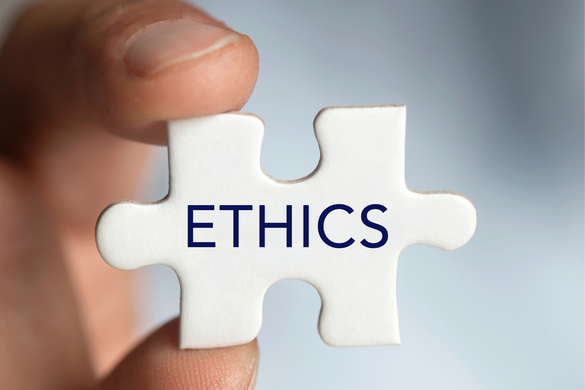Make a Commitment to Uphold High Ethical Standards

The great Aristotle once said, "Educating the mind without educating the heart is no education at all".
From blood diamonds to mining with cyanide, from the high energy-consumption of mining activities to dangerous working environments for miners and labourers - In the world of gems and jewellery, the issues regarding ethics are many. These issues are too vast to be covered under one article - In the months and years to come, we at GA, hope to be able to address many of the ethical issues that the industry faces in depth. But first, it is essential for all of us to make the commitment towards upholding high ethical standards without exception - The rest, we feel, will follow!
The world today is waking up to human rights and environmental violation issues - it's true - but above all the world is rapidly becoming less tolerant of unethical and dishonest practices. So, the first step before resolving to clean up your resource chain or to give to charitable causes would be to make a whole-hearted commitment towards upholding of honesty, integrity and ethical practices across the board.
Historically, "reputation" in the gems and jewellery world has been linked to the authenticity and quality of gemstones and precious metals, and the traceability of legal trading chains. While these aspects should be looked at without compromise, ethical practices should embrace all areas of activity. Be it in the sphere of management policies, compliance with the law, social responsibility, environmental protection, transparency in communications with employees, customers or stakeholders - an adherence to ethical practices yields immeasurable benefits. Imagine a scenario where your conduct is so transparent and straightforward that competitors who spread rumours about you are brushed off and not believed by your customers and stakeholders! It is indeed possible to make such a scenario a reality, if one is committed.
The starting stride towards making the transformation into an organization that follows ethical practices across the board would be to educate oneself about the ground realities. Do we as the owners of jewellery businesses know what issues our own employees face at the workplace?; Does our staff have an upward feedback process that is devoid of fear?; Do we as retailers have a keen awareness about the ethical issues of our products across their entire value-chain?; Do we pass on the correct information to our customers or do we merely offer answers that we know will appease them?; Do we know how our staff interact with our customers with regard to honest information and providing proper after-sales service, which is the customers' basic right?; Do we ourselves exhibit the courage to advocate our thoughts openly in order to influence decision-making and positive change?; Do we set an inspiring example for others in our organisation to draw from?
Besides complying with laws and standards, we should all develop self-regulating codes of conduct. This can only be done after getting the complete picture. We must do a complete evaluation of all our operations, including how our own staff and customers feel. We must study best practices in every sphere that falls under the gamut of our businesses, and make a commitment to apply these practices in our operations.
John Stuart Mill once said, "A person may cause evil to others not only by his actions but by his inaction, and in either case he is justly accountable to them for the injury." So, if you as a jewellery retailer, for example, have never thought about where your wholesalers source their diamonds or metals from, as long as you were guaranteed their authenticity, but upon delving into the matter find that there are some discomfiting goings-on in your supply chain, it would be your moral duty to do something about it. You have a choice to either source your products from elsewhere or to get your sources to clean up their processes. Or, if you find that you as management have taken some action that you feel was erroneous in hindsight, you must have the humility to apologise and rectify your mistake.
As an exhibition of great transparency in the face of grave challenge, Johnson & Johnson met its Tylenol crisis in 1982 by pulling the product off the shelves without consideration to its losses and embarrassment. In multiple interviews, James Burke, CEO of Johnson & Johnson said that J&J's Credo made it easy for him and his team to know exactly what to do. "Johnson & Johnson's first responsibility is to the doctors, nurses, and patients, to the mothers and all the others who use our products and services", he stated.
Like Jeremy Bentham once said,"Create all the happiness you are able to create; remove all the misery you are able to remove. Every day will allow you, --will invite you to add something to the pleasure of others, --or to diminish something of their pains.â€
Let us not spoil the spoils of our labour by accepting ethical glitches in any of our processes. Here's to our wholehearted commitment towards building respect, credibility and prominence for our business community and industry, by making ethical practices a priority!

